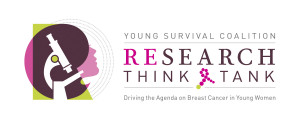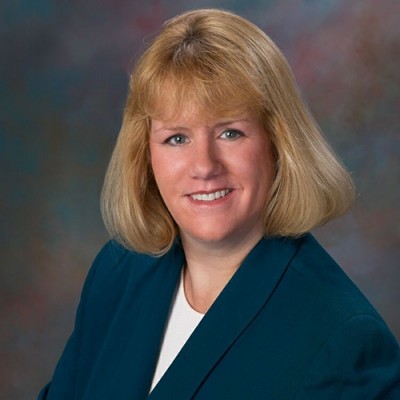 I was very excited when I got the email last July from Kat Werner inviting me to be part of a YSC project called the Research Think Tank. The email explained that in 2001 YSC had convened a "Medical Research Symposium on Young Women and Breast Cancer," which resulted in a white paper that set an agenda for the future direction of research in young women. Now YSC was re-evaluating the state of the research, in order to identify what "holes” still existed in breast cancer research pertaining to young women. Kat invited me to be a part of the Think Tank, and I jumped at the chance.
I was very excited when I got the email last July from Kat Werner inviting me to be part of a YSC project called the Research Think Tank. The email explained that in 2001 YSC had convened a "Medical Research Symposium on Young Women and Breast Cancer," which resulted in a white paper that set an agenda for the future direction of research in young women. Now YSC was re-evaluating the state of the research, in order to identify what "holes” still existed in breast cancer research pertaining to young women. Kat invited me to be a part of the Think Tank, and I jumped at the chance.
You see, despite my degree in English and my almost total avoidance of science courses in college, I have become a medical science geek. I visit websites that report new medical developments. I have attended the San Antonio Breast Cancer Symposium for the past two years, and I have reviewed grant proposals for the Department of Defense Breast Cancer Research Program. So this self-described science geek was thrilled to be invited to be a part of the Research Think Tank that would be a collaboration between advocates and researchers to set a revised agenda for young women with breast cancer.
In preparation for the conference itself, Think Tank advocates were divided into work groups, and each work group was assigned a broad area on which to focus. I was assigned to the Treatment work group. This group focused its efforts on analyzing research concerning surgery, chemotherapy, radiation, and endocrine therapy specifically in young women and then identifying important issues which had not yet been studied. What struck my group most as we were exploring the existing research is the total lack of a uniform definition of what constitutes a "young woman with breast cancer." Many studies appear to use menopausal status as a surrogate for age, often with no indication that anyone has confirmed the patient's actual menopausal status. More significantly, of the studies that have classified women by age, there are studies defining "young women" as those under age 35, those under age 40, those under age 45, and—somewhat astoundingly—those under age 65. Without a common definition of who is a "young woman with breast cancer," how will researchers ever be able to reach meaningful conclusions on the appropriate treatment for these women?
Which leads me back to why the upcoming YSC Research Think Tank is so important. A study presented at last year's San Antonio Breast Cancer Symposium appeared to show that breast cancer in women diagnosed at age 40 or younger responds differently to chemotherapy—almost as if it is a different disease. Yet this disease is not being systematically studied in this group of women. This is a perfect example as to why we need to focus researchers to help make a measurable impact in the lives of young women affected by breast cancer.
While I have been looking forward to the Think Tank meeting since last July, my excitement has been somewhat dampened by the tears I’ve shed since Kat's sudden death last September. Kat had a remarkable talent for cutting through the scientific doublespeak and getting to the heart of the issue or the hole in the science. She respected the researchers, but she also commanded their respect due to her depth of scientific knowledge and her ability to clearly articulate the survivors' perspective. She was never intimidated by the researchers she met because she believed we could only truly find a cure if advocates and scientists worked together. While I know that others had a part in initiating this Think Tank, it truly reflects Kat's heart and soul. It hurts to know she won't be physically present at the conference she planned to lead, but I hope that I, along with all the advocates and scientists, can channel her spirit as we work to outline the necessary research strategy it will take to improve the lives of young women affected by breast cancer.




